Denchu Hirakushi House and Atelier
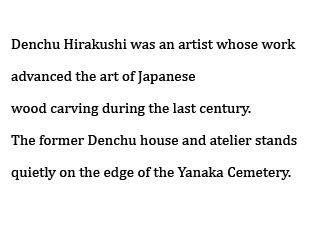
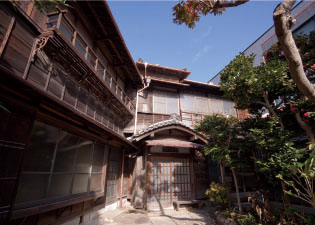
Yanaka has been a center of artisans since the Edo-era, but after the Tokyo Fine Art School (predecessor of Tokyo University of the Arts) was established in Ueno in 1887 in the Meiji-era the surrounding area became a center of artists and culture. Denchu Hirakushi was born in Ibara, Okayama Prefecture in 1872. After coming to Tokyo in 1897 he spent over 70 years in the Yanaka and Ueno-Sakuragi neighborhoods as part of a group of famous artists such as his teacher Okakura Tenshin, Kouun Takamura, Taikan Yokoyama and others. Intently devoted to his work, Denchu led a poor life, but was supported by many in the community and later offered some of his works to them. Denchu looked up to Tenshin his whole life, carving statues of him-one at Tokyo University of Arts and another at the Okakura Tenshin Memorial Park in Yanaka (the former site of the Japan Art Academy). Denchu merged traditional Japanese carving and modern realism, and the influence of his study of Zen Buddhism and kabuki theater can be seen in his works such as Tenshou (Transmigration of Souls) and Kagami-jishi. Denchu supported younger artists and donated his work to Tokyo University of the Arts. He was honored as a citizen of Taito Ward in 1961 and awarded the Order of Culture1964. His character and contribution to art is still spoken of with pride and affection by residents and non-locals alike.
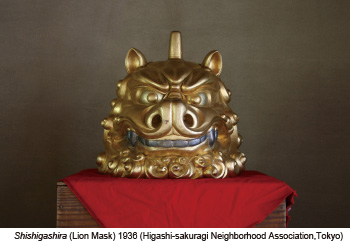


With the help of other artists and friends such as Taikan Yokoyama, Kanzan Shimomura, and Buzan Kimura, Denchu completed his atelier in 1919. It was a pioneering work of architecture, with a modern atelier and a north-facing skylight to capture the best natural light throughout the day. Three years later, he built a traditional Japanese house next to the atelier, where he and his family lived until 1970. He then donated the house and atelier to his hometown of Ibara City. The house is generally closed to the public, but is maintained by local non-profit groups and volunteers from Tokyo University of the Arts with the support of Ibara City to assist a new generation of artists, and is open for special exhibits.
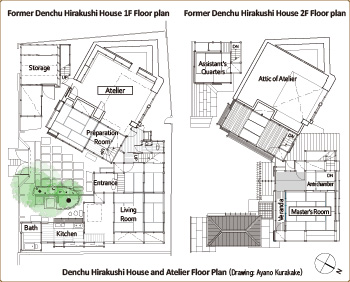
- 1973
- House and atelier is donated to Ibara City
- 1999
- House manager withdraws, leaving the house empty.
- 2001-present
- Denchu’s granddaughter, Ms. Hiroko Hirakushi, neighbors, Taito Cultural and Historical Society, and Tokyo University of the Arts volunteers begin repairs and cleaning of the house.
- 2004
- Ibara City repairs the roof and eaves. Tokyo University of the Arts Architecture Preservation students survey the house.
- 2004-2007
- Tokyo University of the Arts Oil Painting and Mural students hold the exhibition “Sustainable Art Project.”
- 2004-present
- Non-profit groups including Taito Cultural and Historical Society begin the “Terakoya Project,” a chance for children to experience the house and help with its cleaning and upkeep.
- 2006-present
- Tokyo University of the Arts Wood Carving Studio begins holding the annual exhibition “New Works from an Old Studio.”
- 2009-present
- Electricity and water pipes are repaired. Denchu House and Atelier begins holding art and design events and concerts.
- 2011-present
- Arts management group Yanaka no Okatte begins a program to revitalize the character of the house.
- 2011
- HIrakushi Denchu House and Atelier nominated a World Monument Watch site 2012 by the World Monument Fund.
http://www.wmf.org/project/denchu-hirakushi-house-and-atelier
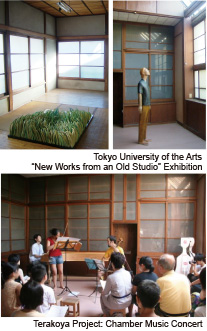
We are looking for people interested in helping with the maintenance, cleaning, and upkeep of this historic house. Also, we are open to anyone who would like to learn more about Denchu and his works, or would like to use the space for art and events or filming. For more information, please contact Taito Cultural and Historical Society directly.
ContactPage
Address:6-1-29 Yanaka, Taito-ku, Tokyo, 110-0001 Japan(Map)